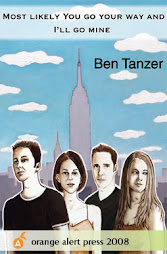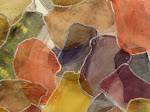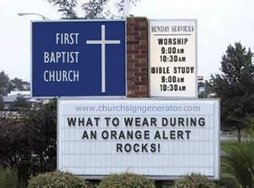
David Blaine
Does being a published poet change the value of your work, and what is meant by value? Basically, the value of a poem rests solely with the reader. The poet places thought and perception on a page, but it is the audience that adds the value. This may or may not be monetary value, this may be the value of understanding, this may be the value of awareness and communication. In order for a poet to be heard he or she must first find an audience. This applies to all art forms, even if it is the soiled alley cat behind the building or the homeless man who believes you are Walt Whitman (he also believes he is Walt Whitman), the ones who hear and spread the word are priceless. The poet does gain monetary wealth, he or she gains respect and well-deserved attention.
One poet who deserves respect is Michigan's David Blaine. His work has been widely published in print and on-line, but more importantly he continues to care for his craft and respects the word. He is happily involved with The Guild of the Outsider Writers, and he also conducts workshops and readings on a regular basis in the community.
Recently, David was kind enough to answer a few of my questions.
Orange Alert (OA): On your blog you list two chapbooks ( "A Fine Feathered Faith" and "The View From Here") available for purchase through paypal. Are they self-released? What can you tell us about each of them?
David Blaine (DB): Yes, they are both self-published. Faith came out in 2005 because so many people, on and off line, had asked if I was going to publish a book. I laid out the manuscript myself in Microsoft Publisher, composed the cover image, and had fifty copies run off at a local print shop. They sold out within a couple of months. I mailed copies around the world. Some people bought three or four at a time to give as gifts.
The poems in Faith are faith-based poems, but not what I’d call religious. With titles like “God Explains How It’s Supposed to Work” and “God Doesn’t Live Here Anymore” well, you do the math.
View came about because I’d grown disillusioned with my earlier work. I think a lot of poets experience this. I’m now disillusioned with most of the work in View as well. But I realize that all these poems still continue to find an audience. John G Hall just wrote me yesterday to say that he’d really enjoyed Shadow Life. He’d just read A Fine Feathered Faith for the first time.
When I self-published that first book I was naïve. I didn’t realize the stigma attached to self-publishing. But when I produced View, well, a lot of those poems had already been published in print and e-zines, so I felt somewhat validated by that. Someone besides my mother thought I didn’t suck. But I also didn’t care what traditional writers and publishers thought. No one is going to pay me for my work either way, and I’m not paying to enter a “contest” to win a book deal. It’s not that important to me. I have received an inquiry of interest from a young publishing company this past year though. Perhaps I’m about to leave the self-published realm without jumping through anyone’s hoops.
OA: You are a supporter of The Guild of the Outsider Writers. What are your thoughts on the community feel of poetry, a solitary craft, fostered by groups like OW and the Guerilla Poetics Project?
DB: There was a time back after the Civil War (Just Kidding!) when they didn’t have the internet. Writers were influenced by regional schools (with an “h”) and movements.
That was interesting, past tense. Now we can be influenced by a wider variety of writers from all over the globe. Writing is a solitary endeavor. We don’t create art by consensus. But true constructive criticism from a wide variety of skilled writers can be invaluable. And it’s important to read widely and deeply. Something aided, again, by the online community.
OW and GP are doing good work by showcasing poets who have been disenfranchised by the academy. I don’t hate the academy, but I don’t support it either.
A few privileged people shouldn’t be the only ones to declare who gets showcased.
I really enjoy the people I work with at OW. They reflect a wide variety of ages, locales, educations and tastes. And their editing bears the fruit of that diversity.
OA: Is poetry meant to be a product? If so, how can we make poetry and the poet more marketable?
DB: Is love meant to be a product? The first poet probably wrote the first poem on the back of a bar napkin, trying to get a young woman to go home with him. Seriously, it was probably to entertain his village. It was to express himself. Art has always been something supported by patrons, not purchased by customers. Even now, if you want to buy an autographed first edition of Carl Sandburg’s poetry, you’ll be shelling out major coin, but if you’ll accept a used library copy, it’s almost free. So what are people paying for? Collectibles, not art.
If you want to make poetry marketable, in my opinion, change the format. Put poems in a cookbook. Have spoken word tracks in between songs on a CD. Sell poems on bumper stickers. Wait, you’re doing that now, aren’t you?
OA: How has "new media" (i.e. blogs, myspace, etsy, lulu) affected you as a writer? What do you think the future holds for new media and poetry?
DB: Well, the chance to read the work of new writers from around the world has been fabulous. But it’s too easy to waste time online. Sites like Facebook are getting so silly with the polls and add-on’s they put in front of you. Online is frosting on the cake. The cake is hard work. The cake is reading, writing and getting out in public to recite. After all these years I’m starting to get local recognition. People stop me on the street and ask if I’ve written anything new. They want impromptu readings. Of course, being a ham, I oblige.
In non-literary ways, the “new media” has had more of an impact. I stopped subscribing to the newspaper. There’s little in there that I haven’t already read online. And the net is great for research. Who said, “Those who forget history are destined to repeat it?” Just Google and you’ll know.
If you want to be on the bleeding edge of new media, put your work out as podcasts and get it up on Bittorrent. But that’s not going to earn you a paycheck.
OA: Has teaching poetry to the next generation changed the way you view your own work in any way? What is one thing you have learned from teaching others?
DB: What I’ve learned is people are desperate for celebrity. It is embarrassing to be introduced as “a published poet.” As if that was something. It’s caused me to come up with a new term, a practicing poet. Imagine, David Blaine, L.P.P. (Licensed Practical Poet). Sounds good, eh? I thought about it. I spend a lot of time studying the art and craft, reading the masters, the avant garde, writing my own work, brainstorming with other poets, going to readings, open mics, and now, conducting workshops. It’s an amalgamation of activity centered around poetry, and I love it.
And I’ve learned that the next generation is so much like every other generation. Full of adolescent angst, dreaming of becoming a literary rock star, assuming if they published a book people would beat down their door. (Sigh…)
OA: What's next for David Blaine?
DB: My wife and I are going to the UK and Ireland on Easter Sunday. I don’t know if I’ll get a chance to recite in public there, nothing is planned, but if anyone asks, I’ve always got a handful of pieces on the tip of my tongue. I go up without a net, hands empty, no paper.
As for the rest, I’ll keep working at what I love and let the future run its course. When I feel like I can’t do anything to further my own work, I like to help other writers. I’ve produced chapbooks for other poets, and of course I help at The Guild of Outsider Writers.
Bonus Questions:
OA: I recently read a cigar review you had written. What is your favorite cigar and what is the most poetic aspect of the cigar?
DB: The best cigar I’ve smoked so far is a Cohiba Black, which my son bought for me as a gift. I can’t afford those though, so there was just the one. A good cigar strikes me differently on different days. My pallet has to be in tune for it, and when that happens, even a moderately priced cigar can become a religious experience. I’d say the same thing about a glass of red wine. And maybe both of those are like poetry, because when I’m distracted, worried, and aggravated, I just can’t appreciate poetry. The “pallet” has to be in tune there as well.
OA: Many believe that music, specifically jazz, and poetry are somehow connected. What is your favorite type of music, and do you ever listen music while you write?
DB: I have very eclectic taste in music, although I rarely listen to Polka. Jazz and Chicago style blues are among my favorites though. I think musical compositions imply and infer things without using words, and poems do the same type of thing with the connotations of their words. I don’t listen to music when I write though, I don’t even keep the TV on. I am an auditory learner, and I listen to my words as I type them. (I almost always compose at the keyboard.) Music might inspire a poem, but when it’s time to write it, the music gets turned off.
For more information on David Blaine, please visit his website.
+by+Nick+Volkert).jpg)

















1 comment:
Another fine interview. I've ran David's work in a couple of issues of Calliope. He's extremely talented.
Post a Comment